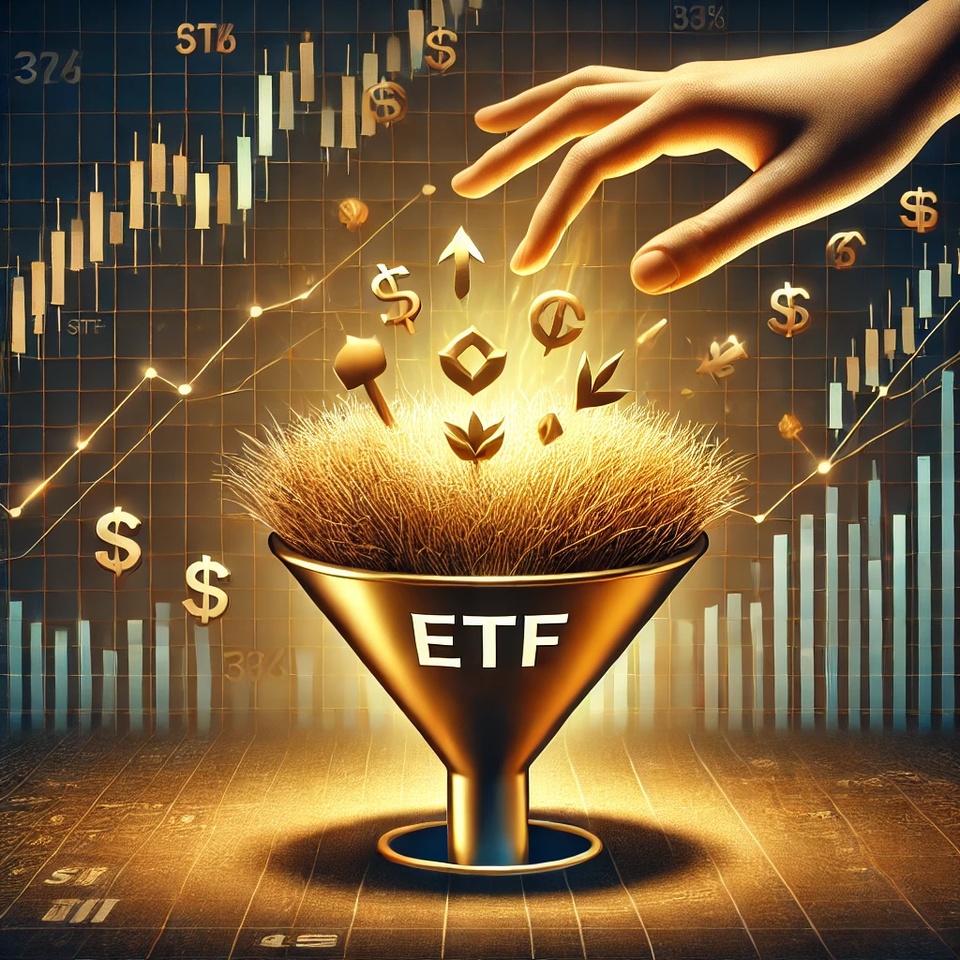Last week, Saturday's episode of "All About Stocks" [1] featured an excerpt from the study "Do Stocks Outperform Treasury Bills?" [2], which sounded quite interesting and the contents of which I subsequently read again in more detail.
The essence of the study is that only a small proportion of companies are responsible for the majority of returns.
It therefore serves as a reminder that it is probably the best choice for the "average investor" to invest in a well-diversified ETF.
Here is a brief presentation of the results.
Hendrik Bessembinder from the W.P. Carey School of Business at Arizona State University has investigated which stocks really drive the market in the long term.
According to the study, since 1926 only 4% of all stocks have generated the total net profit of the US stock market [2].
The other 96% of stocks in total have only generated as much return as safe one-month US government bonds or even less [2]. The average monthly return here was 0.37% (which is roughly equivalent to an annual return of 4.53% when compound interest is taken into account).
Almost more interesting is the following:
The top 50 companies were responsible for 39.29% of the total value creation of the US stock market and.
... the top 90 stocks (only 0.36% of all companies) even generated more than 50% of the total market profit [2].
The 4% mentioned still represent just under 1,092 of over 25,000 companies. It doesn't seem so unrealistic to find them.
The only problem is:
The best stocks are usually only recognized in retrospect
- Apple, Mircosoft and Amazon were still small, unknown companies 30 years ago.
- Many investors would have bet on "safe" large companies back then, but some of them (e.g. Kodak or Nokia) are no longer among the top performers today.
- We will only know today's 4% winners in the future.
Even professionals often fail
- Active fund managers try to do just that: find the best stocks and avoid the bad ones.
- But most fund managers do not beat the market over the long term.
Timing is often extremely difficult
- Many of the best stocks looked like losers in the meantime.
- For example, the Amazon share fell $AMZN (-2,35 %) after the dotcom crash by almost - 90 %, even after mid-2021 Amazon lost almost - 50 %, would you have held it?
More than half of all stocks have even generated negative returns over their entire lifetime [2].
That means: The average stock return we all know is not generated by the "broad" market, but only by these 4% of stocks.
Further results of the study:
Value creation on the stock market is extremely unevenly distributed.
- ExxonMobil $XOM (-1,06 %) alone generated the most shareholder value creation with 1 trillion dollars and was responsible for 2.88% of the total market development from 1926 to 2016 [2].
- Apple $AAPL (-0,42 %) ($745.7 billion), Microsoft $MSFT (-0,32 %) ($629.8 billion), General Electric $GE (+5,56 %) ($608.1 billion) and IBM $IBM (-0,58 %) ($520.2 billion) are among the top 5 companies that together account for over 10% of total stock market value creation [2].
The question now for us as investors is:
Do I really think I can buy these 4% winning stocks early can find them early?
... and at the same time can I at least stay away from the biggest losers from the remaining 96%?
... or do I prefer to stick with John Bogle the founder of Vanguard, who gave the following famous quote:
🧠 "Don't try to find the needle in the haystack. Just buy the whole haystack."
The haystack is in that sense an ETF:
- ETFs are a self-optimizing system in which well-performing sectors and companies are overweighted and weak companies gradually lose importance.
- You don't have to find the 4% yourself, the ETF does it for you.
Conclusion
Yes, it is theoretically possible to find the 4% yourself, to time it correctly and to hold it, as well as to stay away from the biggest losers of the 96% in the long term.
The question is: do you want to bet your portfolio on it, or would you rather make sure you automatically profit from the 4%.
💡For most investors, a simple ETF investment as a "core" is therefore probably the best choice.
Thank you for reading 🤝
__________
P.S. The study was published in 2017 and last revised in 2018.
With regard to a more recent analysis, which refers specifically to the last few years, the study does not contain separate results for shorter periods. However, it does mention that this effect has been even more pronounced in recent decades, particularly since the 1980s. To get a detailed current analysis, one would have to search more recent research.
__________
Source:
[1] https://open.spotify.com/episode/7ik1W0e9zq7TBYacPW0eVl?si=Sw2Mu0XSSH2SQFp5cHtpLQ
[2]
published 01/2017, revised 06/2018
https://papers.ssrn.com/sol3/papers.cfm?abstract_id=2900447&utm_source=chatgpt.com







